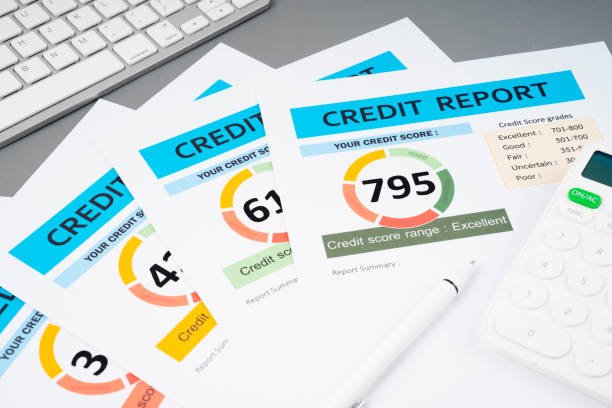
From Payment History to Credit Utilization: Demystifying the Components of Your Credit Score
Your credit score isn’t just a number — it’s your financial reputation. Whether you’re applying for a mortgage, a credit card, or even a new phone plan, that three-digit score plays a crucial role in determining your eligibility and interest rates.
In Canada, credit scores range from 300 to 900, with higher scores making you more attractive to lenders. But what exactly makes up your score? And how can you make sure you’re improving it — not damaging it?
This guide breaks it all down: the core components of your credit score, how they’re calculated, and what you can do to boost your score.
What Is a Credit Score, and Why Does It Matter?
Your credit score is a snapshot of your credit health, used by lenders to predict how reliably you’ll repay debt. It’s calculated using the information found in your credit report, which is compiled by credit bureaus like Equifax and TransUnion.
Having a higher score can help you:
- Qualify for mortgages and loans more easily
- Get better interest rates (which means saving thousands over time)
- Increase your credit limits
- Get approved for rental housing or even some jobs
A poor credit score, on the other hand, can limit your financial options and cost you more in interest and fees.
What Makes Up Your Credit Score in Canada?
Your credit score is based on five main components:
1. Payment History (35%)
This is the most important factor. It shows whether you’ve made past credit payments on time — or missed them.
It includes:
- Credit cards, personal loans, car loans, and mortgages
- Missed or late payments
- Accounts sent to collections
- Bankruptcies and foreclosures
Tip: Always pay at least the minimum on time. Even one late payment can hurt your score.
2. Credit Utilization (30%)
This is how much of your available credit you’re using. Lenders prefer that you use less than 30% of your credit limits.
For example: if your total credit limit across all cards is $10,000, try to keep your balance below $3,000.
Tip: Pay down your balances and avoid maxing out your cards.
3. Length of Credit History (15%)
The longer your credit accounts have been open, the better. This shows you can manage credit over time.
Tip: Don’t close old accounts, especially if they’re in good standing.
4. Credit Inquiries (10%)
Every time you apply for new credit, it triggers a “hard inquiry,” which can lower your score slightly.
Tip: Group mortgage or car loan applications together within 45 days to count as one inquiry.
5. Credit Mix (10%)
Having different types of credit (e.g. a credit card, a car loan, and a mortgage) shows you can manage various credit products responsibly.
Tip: You don’t need every kind of credit — but showing variety can help.
How to Improve Your Credit Score
- Pay all your bills on time — even one missed payment can linger for years
- Lower your credit utilization by paying down debt
- Avoid applying for too many credit products at once
- Keep old accounts open (unless they have fees or you’re at risk of overspending)
- Diversify your credit if you only have one type of account
Also, regularly check your credit report for errors. You can get free access to your report through services like Borrowell, Credit Karma, or directly from Equifax/TransUnion.
📊 What Makes Up Your Credit Score in Canada?
Your credit score is calculated based on several weighted factors. Here’s how each one contributes to your total score.
💳 Payment History
Weight: 35%
Whether you’ve paid bills on time, including credit cards, loans, or utilities.
📉 Credit Utilization
Weight: 30%
How much of your available credit you’re using — lower is better.
⏳ Credit History Length
Weight: 15%
The average age of all your credit accounts — older is better.
📂 Credit Mix
Weight: 10%
Having a variety of credit types (credit cards, loans, etc.).
🔍 New Credit Inquiries
Weight: 10%
Frequent or recent credit checks can slightly reduce your score.
Tools and Resources to Monitor Your Credit
Staying on top of your credit health is easier than ever. Here are some tools to try:
- Borrowell and Credit Karma: Free access to credit scores and reports
- Banking Apps: Many Canadian banks offer free credit score updates through online banking
- Equifax and TransUnion: Canada’s two official credit bureaus. You can request full reports and dispute errors
📊 Compare Credit Score Tools in Canada
Wondering which free credit score platform to use? Here’s how Credit Karma, Borrowell, and Equifax compare in Canada.
| Feature | Credit Karma | Borrowell | Equifax |
|---|---|---|---|
| Credit Score Provider | TransUnion | Equifax | Equifax |
| Cost | Free | Free | Free (report only once/year) Paid plans: $19.95+/mo |
| Score Type | TransUnion CreditVision | Equifax ERS 2.0 | Equifax Beacon 9.0 |
| Frequency of Updates | Weekly | Weekly | Monthly (paid plans) |
| Credit Monitoring Alerts | Yes | Yes | Yes (paid only) |
| Additional Offers | Personalized credit cards & loans | Bill tracking, loan recommendations | ID theft protection (paid) |
| Best For | Quick score checks & TransUnion insights | Equifax score access & free tools | Full credit file & deep monitoring (if paid) |
FAQs About Credit Scores in Canada
Will checking my own credit hurt my score?
No. This is considered a “soft inquiry” and has no impact on your score.
Why did my score drop after getting a mortgage?
A new mortgage can temporarily reduce your score, but making payments on time will eventually raise it.
What’s a good credit score in Canada?
- 800–900: Excellent
- 740–799: Very good
- 670–739: Good
- 580–669: Fair
- 300–579: Poor
Final Thoughts
Your credit score isn’t set in stone. With the right habits — paying on time, using less credit, and being selective with new applications — you can steadily build or repair your score.
A strong credit score opens financial doors. And understanding how it works is the first step
📈 Ready to Boost Your Credit Score for a Better Mortgage?
Understanding your credit score is the first step — improving it is the next. Whether you’re applying soon or just planning ahead, our mortgage experts can help you build a stronger profile and get mortgage-ready faster. Get a Free Credit Review with a Mortgage Expert
Stuck with a Mortgage Decision?
Don’t stress — our team is here to help. Reach out for free, no-obligation guidance.
Contact the Experts



